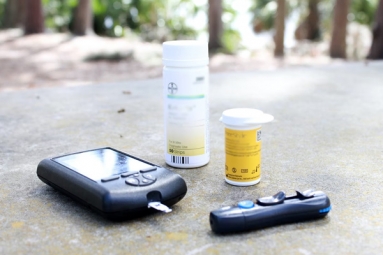
(Image source from: })
Generally, the persons with diabetes will lose their eyesight capacity due to blockage of blood vessels in the eye. For restoring the vision, doctors will choose periodical laser treatment for treating diabetic retinopathy, which leads to loss of peripheral and night vision.
The recent experiments conducted by the researchers from Johns Hopkins University and the University of Maryland, have created new hope in the patients. They found that a growth protein is stimulating second blood vessel in the eye, if this can be blocked, the vision cannot be lost.
If new medicine or drugs prepared to block growth factor VEGF, which stimulates the abnormal blood vessels, the blindness can be controlled or regulated, but not prevented.
"The results suggested to us that although VEGF clearly plays an important role in blood vessel growth, it's not the only factor," said lead author Akrit Sodhi, an assistant professor of ophthalmology at the Johns Hopkins University School of Medicine.
The researchers have found a protein called angiopoietin-like 4 on the basis of their study on lab-grown human cells and mice. So, if angiopoietin-like 4 action and the VEGF are slowed down, the results would become positive.
The report, which published in the US journal Proceedings of the National Academy of Sciences, also mentioned that the scientists are working on the influence of angiopoietin-like 4 action in other eye diseases.
People with proliferative diabetic retinopathy, may get a chance to get clear vision or better vision if new drug aimed at blocking the growth of angiopoietin-like 4 action and the VEGF.
-Kannamsai










